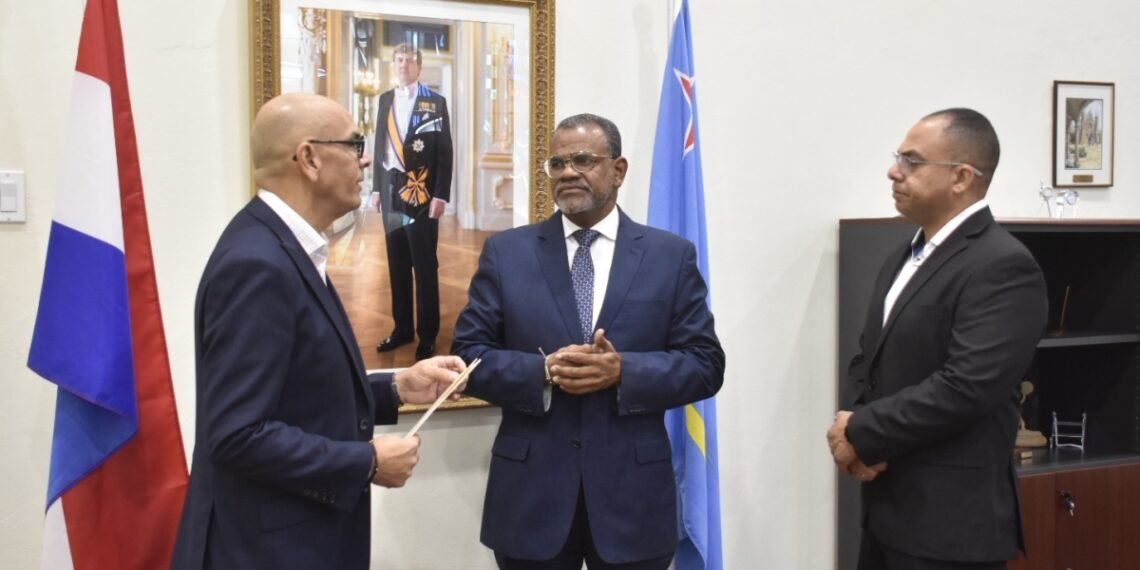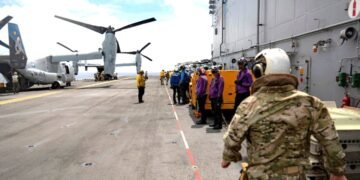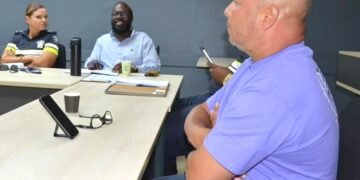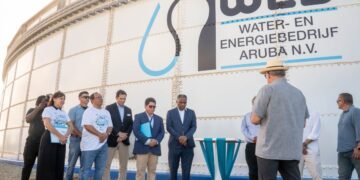Aruba’s fight for autonomy is not a thing of the past but an ongoing reality that continues to be at the heart of today’s political debate. During a press conference, the PPA faction, led by parliamentarian Otmar Oduber and active member Eduard Pieters, presented a “minority statement.” This document outlines the PPA’s vision, analysis, and alternatives regarding the Rijkswet (Kingdom Law), which is seen by the party as something imposed on Aruba. For the PPA, this is not just a political issue, but a matter of identity, self-determination, and the future of the people.
The Reality and Historical Achievement
“Our ‘minority statement’ is clear: Aruba cannot relinquish its financial autonomy in exchange for a benefit that offers only marginal advantages. The document demonstrates that the cost to the people will far outweigh the benefit promised by the Netherlands,” Otmar Oduber explained. He emphasized that Aruba was not involved in the creation of the “baby Rijkswet,” and is now confronted with one of three versions: HOFA. The PPA provided a precise analysis of how Aruba reached this point and what risks it faces if it allows the Netherlands to impose a form of financial oversight.
Aruba has a unique status within the Kingdom, broader and better protected than Curacao and Sint Maarten. This is not a gift, but a right earned after decades of struggle in the 1940s, 50s, 60s, and 70s. The Netherlands seeks to undermine these protections in an effort to gain more control over Aruba, but the PPA makes it clear that Aruba’s autonomy is non-negotiable.
Existing Alternatives and Constitutional Protection
According to Otmar Oduber, “A fundamental point is that Aruba already has sufficient control mechanisms and guarantees at the constitutional and statutory level. Article 50 of the Statute of the Kingdom gives the Netherlands authority to act only in the case of a real threat.” In the past, even the governor used legal powers to prevent financial mismanagement, proving that the system already includes sufficient checks and balances. This confirms that the Rijkswet is unnecessary and merely a way to reduce Aruba’s autonomy, putting it on the same level as Curacao and Sint Maarten, which have never had full autonomy.
The Netherlands cannot use a lack of trust as a reason to limit Aruba’s autonomy. Aruba has demonstrated that it can achieve budget surpluses and manage its financial responsibilities. The Netherlands already has all the legal tools to intervene if Aruba fails.
Question of Autonomy or Dependence
The Rijkswet goes beyond guaranteeing financial security. “It implies that all of Aruba’s financial management laws would need approval from the Dutch Second Chamber and the Council of Ministers. Essentially, our finances would be under permanent oversight,” Oduber stated. “The question we must ask is whether it is worth giving up our autonomy for a difference of 3.5% versus 5.7% interest, which amounts to around 8 million florins?” However, Aruba could achieve this through internal discipline and structural reforms. The PPA maintains a strong stance that autonomy has no price.
The Netherlands Already Has Sufficient Tools to Act
Ultimately, the PPA’s “minority statement” is more than just a document; it is a call to defend Aruba’s autonomy and provides a realistic alternative. The PPA shows that there is another way forward, where transparency, responsibility, and internal reform are key, without surrendering Aruba’s identity and autonomy. For the people of Aruba, the fight for the Status Aparte was not a gift—it was a hard-won achievement. The PPA is determined to continue defending this legacy for the people and for future generations. Aruba is not a submissive country; Aruba is a country of determination. With this statement, the PPA firmly stands both in the Netherlands and within its own community.





















Discussion about this post